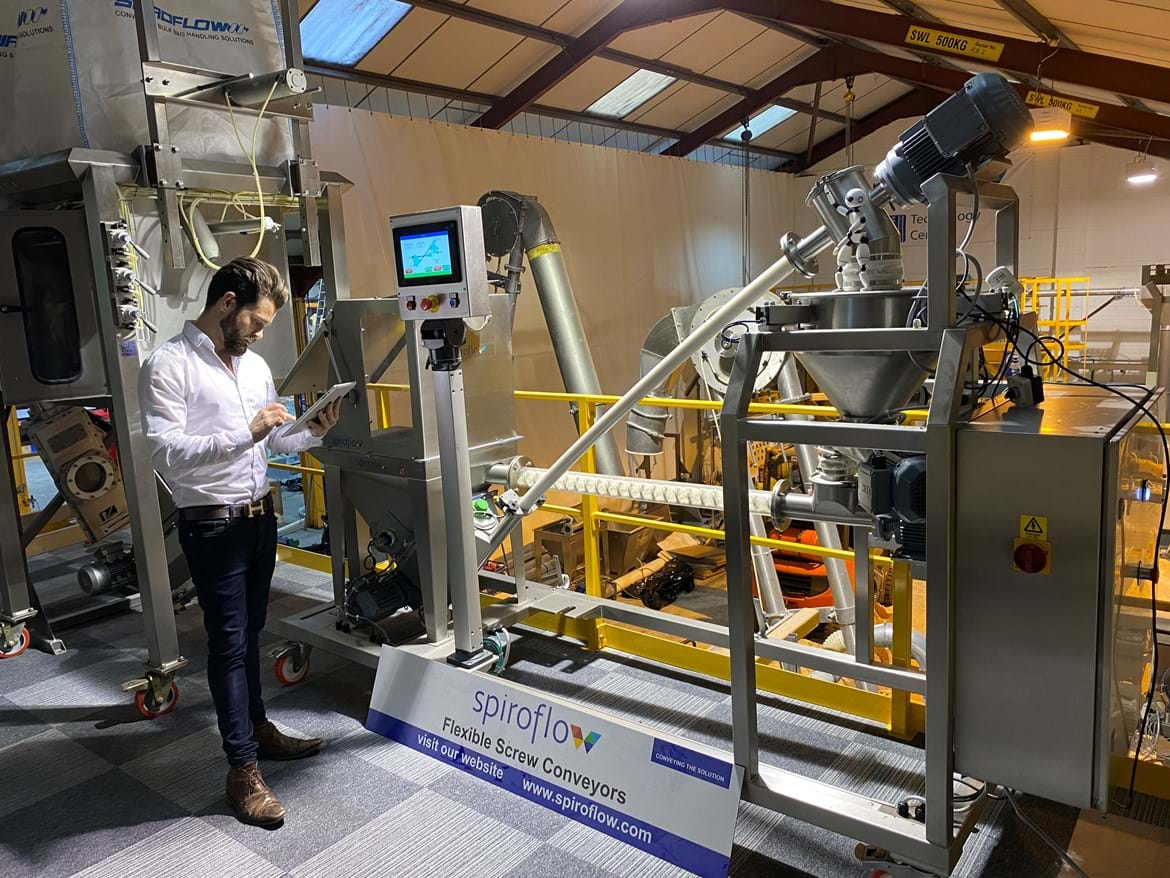
Manufacturing leaders have access to a host of digital technologies which can create a step-change in productivity, efficiency, profitability, and ultimately, growth.
In our previous blog we covered the most common technologies that companies adopt with support from the Made Smarter programme – data and software systems, and automation.
In this blog we’ll look at two up-and-coming technologies, which may appear to be reserved for large corporations, but in reality, they are accessible to companies of any size. Robotics and the industrial internet of things have the potential to reap significant benefits in many companies. Here’s how:
Robotics
Robotics can reduce or replace repetitive work previously done by humans in the manufacturing process.
This technology usually involves a mechanical arm, which can move in three or more directions, that can be used to complete material handling and pick-and-place tasks faster and more efficiently than manpower alone.
Collaborative robots (co-bots) are designed to work safely in the same space as people without the need for safety barriers and can be used for a wide variety of tasks, such as assisted assembly, packing, welding, machine loading, and palletising.
Industrial robots are used for tasks requiring higher speed, heavier tools, or products, or in harsh environments. These are more likely used for welding, assembling, or painting cars on a production line.
The introduction of robotics often improves productivity by allowing staff to focus on more complex, higher value-add, or more intricate and interesting tasks. Other benefits include improved health and safety, increased material utilisation, higher quality products, reduced cycle times and reduced lead times.
Despite all these benefits, UK manufacturers have been slow to adopt the technology. But the positive news is that robotics adoption in the UK has risen by 50% over the last five years and is likely to accelerate. Persistently high job vacancies are forcing manufacturing leaders to look to technology to solve their productivity problem. Add to the mix the reduction in cost and massive tax incentives such as the ‘super-deduction’ - enabling companies to claim 130% capital allowance on qualifying plant and machinery investments - and robotics is now much more accessible to SMEs. Made Smarter has helped several manufacturers adopt robotics including GB Engineering, Bloom-in-Box, Storth and JCM Fine Joinery.
There is a wealth of robotics solutions available, which makes choosing one a tricky task. Made Smarter can help define problems and find the right solution to suit. Our advisor’s team can then help you access grant funding as well as provide ongoing help and support. To learn more about automation and read about more case studies visit the resources section of our website.

The Industrial Internet of Things (IIoT)
The industrial internet of things is a network of smart devices like sensors that monitor, collect, analyse, and exchange data.
In a factory this could be inputs such as light, heat, motion, temperature, pressure, signal, radiation, or force.
IIoT allows manufacturers to improve operations with data-backed insights. Applied within manufacturing and factory environments it can unlock productivity gains, streamline processes, improve yield, and increase quality control. It can help predict equipment failure, saving maintenance costs and time, but also making sure to reduce business downtime and avoid failures or accidents.
IIoT also helps tackle issues of obsolescence, especially for those SMEs with older machinery and processes.
IIoT can also help manufacturers understand energy use – determining which machines are more energy-efficient and when.
Putting the benefits together IIoT is helping create the factories of tomorrow. Read how Made Smarter helped Spiroflow reap the benefits of the technology. For more information on Made Smarter technologies download our new whitepaper Powering the Digital Transformation of SME Manufacturers.


